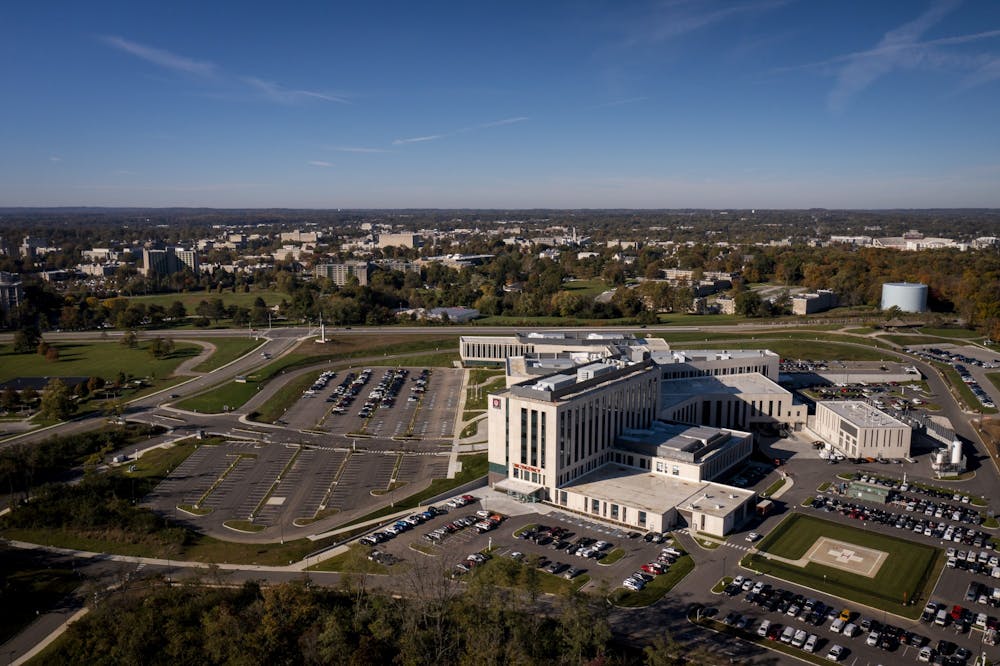IU’s clinical psychology program plans to involve its students within several departments of the IU Regional Academic Health Center which opened to patients in Bloomington this December. Once the program recruits a professor as its lead, it will allow students to partner with professionals in nursing, social work, speech and hearing, and other medical fields.
Professor Brian D’Onofrio, director of clinical training for the IU Department of Psychological and Brain Sciences, said he’s looking forward to having clinical psychology students involved with the program.
“We are very excited about the possibilities,” D’Onofrio said. “Having a physical presence in the academic medical building, being so close to the hospital will really help us build stronger ties with IU Health to hopefully reduce the amount of pain, suffering and difficulties associated with mental health and substance problems.”
D’Onofrio said the program will get started once the department is able to designate a professor to guide students in their collaborations with the hospital. However, D'Onofrio said the search for that professor has been difficult due to staffing shortages.
“Hiring people right now and moving forward on that front is a complicated endeavor,” D’Onofrio said. “It’s unclear when we’re going to be able to have a full-time person over there right now.”
Once the program is able to get started, D’Onofrio said he’s hopeful all students involved with clinical psychology at IU would be able to work in some capacity with the Academic Health Center. Currently, the IU clinical psychology comprehensive training program only admits 3-5 graduate students per year. D'Onofrio said he thinks it’s essential for students to be able to combine scientific research and mental health services to best care for patients.
“The burden of mental health and substance abuse problems is only growing,” D’Onofrio said. “It’s overwhelming the medical field right now.”
D’Onofrio said the program will allow for students to research the best ways to approach mental health care.
“We want to spend our time and effort on what’s going to be most helpful,” D’Onofrio said.
D’Onofrio said mental health research is especially pressing in a post-pandemic world. A recent Surgeon General advisory stressed the urgency with which medical professionals must address mental health in children, adolescents and young adults, he said. D’Onofrio said mental health problems are increasing particularly in those age groups.
Third-year doctoral student studying clinical psychology Allison Peipert is currently working as a student therapist at a local IU Health Riley Pediatrics clinic. She said mental health is a major concern for younger age groups, especially undergraduates who are still in a developmental period.
She also said graduate students can struggle with stress-related mental health issues.
“Grad students are not necessarily getting a lot of the benefits that you would get as a full-time, paid, salaried employee, but we’re working a lot, and there’s still a lot of pressure to meet demands,” Peipert said. “Luckily, I’m in pretty good hands. That’s not the case everywhere.”
As she gains hands-on experience in clinical work, Piepert said she’s seen the ways mental health resources have been spread thin—especially in response to the pandemic.
“We’re seeing that there’s not the infrastructure and the available resources to meet everyone’s concerns,” Peipert said.
Peipert said she thinks her experience working with IU Health has been beneficial in showing her the ways that she and her peers can improve the health system.
“It was really important to get my hands-on experience in a clinical setting to see what the struggles are that we’re dealing with in terms of providing quality care, what are points of improvement that we could make,” Peipert said.




